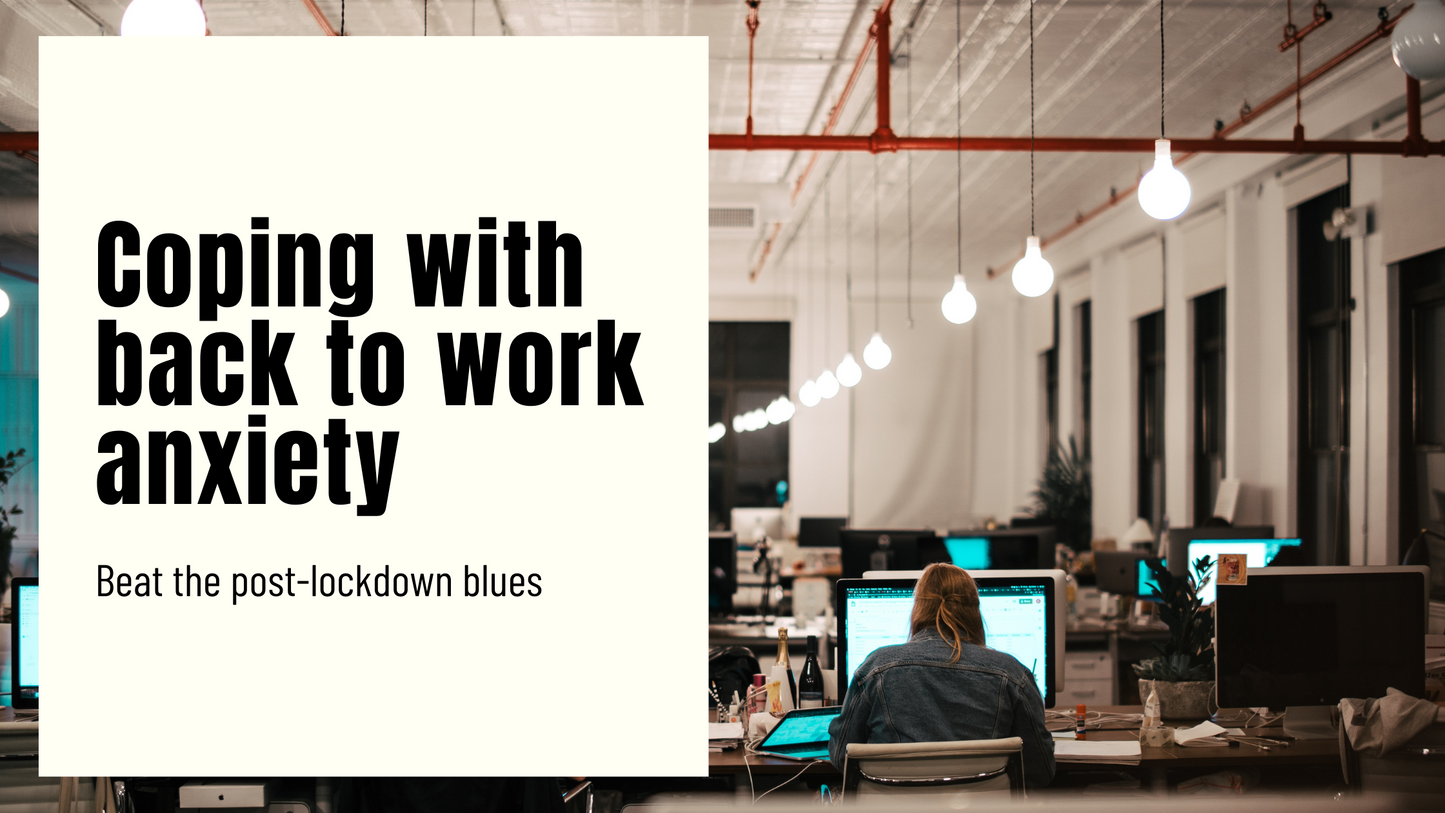Stress when excessive can make you anxious. I don’t know about you but I don’t like anxiety – it’s haunted me on and off across a lifetime and generally I’ll do my best to follow habits that support lower anxiety in my clients and my own programmes.
On the flip side, I like stress and excitement… even uncomfortable stress. After all, without this there’s no momentum for adaptation.
Coming out of lockdown and during lockdown, there were many reasons to become more anxious. Right now many folk are entering back into the workplace, with new or old jobs – resuming the commute and social interactions can be a source of increased anxiety.
When balancing stress with recovery we can help control anxiety. Remembers one key phrase “control the controllable”.
An area that excessive uncontrolled stress and anxiety has a clear impact on is our food and drink choices.
Much of the article below also ties in nicely to the two branches of the nervous system, the fight and flight (sympathetic), vs rest and digest (parasympathetic) systems.
Anxiety can kick in when our normal higher processes become overwhelmed and the reptilian brain kicks into action. This is called an amygdala hijack.
Read on for more information and solutions:..

Anxiety Assessment:
- Do you feel stressed most of the time?
- Do you use alcohol to help clam you down?
- Do you find it difficult to relax?
- Do you use sugars and comfort foods because you are stressed out?
Have you been under prolonged stress?
Have you suffered from the following in the last 6 months to a year; (list top stressors e.g. divorce, death, imprisonment!…..house move, job change etc).
The top five most stressful life events include:
- Death of a loved one.
- Divorce.
- Moving.
- Major illness or injury.
- Job loss.
Quick fixes for stress management:
- Control blood glucose
- Become more metabolically flexible
- Hydrate
- Exercise
- Breath
- Avoid excessive stimulants or sedatives
- Use supporting nutrients such as my favourite fixes include:
- Adaptogens
- Liquid Adaptogens
- Powdered Adaptogens (Amber AminosandAlpha Greens)
- Magnesium (R5s,Amber Aminos,Multi Vitamin and L’Amino)
- Theanine (Alpha Greens,Focus Sustainand L’Amino)
- Adrenal T Max
Stress can be caused physically through exercise and diet and also psychologically through the way we choose to interpret the things around us.
The way we chose to interpret many aspects of life will dictate the physiological effects of the stressor.
To feel calmer, it’s important to reduce the elements of stress we can control e.g., diet and work on altering the ways we interpret and internalise external factors. The way we perceive our lives has a lot to do with altering the ways we behave and approach foods and exercise.
Often taking natural supplements can help support natural stress responses ensuring an easier route to making changes in the way we think about our daily lives.
As with all behaviour change it’s often a case of supporting physiological factors like cutting back on sugar and caffeine and combining these with mental exercises such as mindfulness and breathing exercises which brings best results.
If we remain stressed for too long our body cannot adapt. This can lead to dysfunction of the stress systems in the body and can take a while to rebalance. This is sometimes called adrenal dysfunction or adrenal fatigue. It’s a phrase and condition, which is unrecognised by the mainstream medical community.
Whilst some stress is necessary and good for us excess and prolonged stressors can lead to a number of unfavourable symptoms. Stress can impact on almost every area of the body from the skin to the digestive system.
Common dietary stressors:
- Excess caffeine = triggers stress response
- Excess booze = first relaxes but then can lead to an imbalanced emotional state making stress feel worse
- Excess sugar or starches = causes rebound hypoglycemia which triggers a stress response
- Dehydration = increases cortisol release
- Excess intake of poor quality foods with additives and preservatives = ‘hidden’ stressors
- Food intolerances and inflammatory foods = inflammation-driven stress response.
The pathways and systems we can support to help us be calm are also the ones which can help use relax before sleeping. It’s better to use lower amounts of these during the daytime or keep off higher dosages of 5HTP if they make you feel tired or sleepy. Many of my products contain a little 5HTP to help things along:
In addition, supporting the dopamine and adrenalin systems can alleviate stress and help keep you calm. Amino acids like tyrosine can help us be more stress-resistant by supporting adequate levels of nor-adrenalin which runs low through prolonged stress, and dopamine supporting herbs like https://examine.com/supplements/muira-puama/ may also help.
There’s a good dose of tyrosine in Focus Sustain my steady calm driven focus blend.
SEX DRIVE
I monitor sex drive as a barometer for general health and recovery in myself and my clients. Why? Cause mostly sex drive is to do with optimal testosterone, DHEA, dopamine and blood flow. If any of these things are compromised, you may experience lowered sex drive.
Excessive cortisol (a stress hormone) can interfere with optimal testosterone function. Prolonged chronic stress and lower DHEA a “hormone of youth”.
If you feel horny, you’ll likely not be as worried about other stuff going on. Also, higher hormones associated with friskiness tend to counteract the hormones associated with not keeping calm. For example, the ratio between cortisol and testosterone has been shown to correlate well with successful outcomes in sporting events and successful business practices and outcomes.
Stress may also deplete magnesium stores and poor blood glucose regulation can be improved by supporting adequate levels of key nutrients involved in blood glucose regulation.
I’ve spoken about the importance of magnesium for recovery here.
STRESS MANAGEMENT
Stress is an integral part of everyday living. While stress by itself is not inherently a negative experience, prolonged stress can be quite harmful to the immune system, the adrenals, and the heart. Each individual’s reaction to the same stressor can be positive or negative. Using the Life Stress Questionnaire will help you to determine the role that stress may play in your present health problems. Because we all react differently to the same stressors, this scale is only a rough indicator of stress in your life.
Some common negative ways of coping with stress are: overeating, smoking, and alcohol or drug abuse. Hopefully, you have found more positive ways to deal with the stress in your life: exercise, mediation, breathing exercises, improving time management, healthy diet, and improving the quality of the important relationships in your life.
Exercise – A regular exercise programme helps to generate a greater sense of well-being, accompanied by increased energy, improved sleep, and improved coping skills. A cardiovascular program, yoga, tai chi, or daily walking are all examples of the many types of exercise that may help you to de-stress your life. See the handout on exercise for ideas on starting an exercise program.
Meditation – It is very difficult to calm the mind and the body during stress unless you have developed some helpful relaxation techniques, such as meditation, breathing, or prayer. Only 5 minutes daily are needed to start improving your reaction to stress. A very helpful paperback book by Joan Borysenko, Minding the Body, Mending the Mind, might be a good way to start a meditation program. There are hundreds of other books that may also be helpful. The important thing is to develop a programme that works for you, perhaps every morning for 5 minutes before you shower. Breathing exercises can accompany meditation or be a stand-alone stress-reduction technique (see handout on breathing techniques).
Life Issues – Improving time management by prioritizing and organizing your daily responsibilities will decrease the total stress load. Improving your communication skills in your important family or job-related relationships can improve the quality of your life by decreasing your total stress load.






